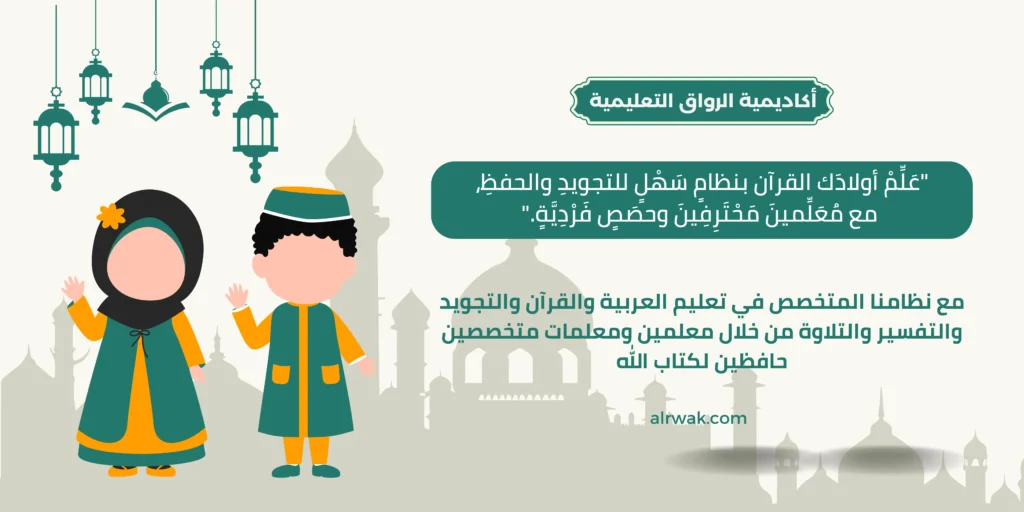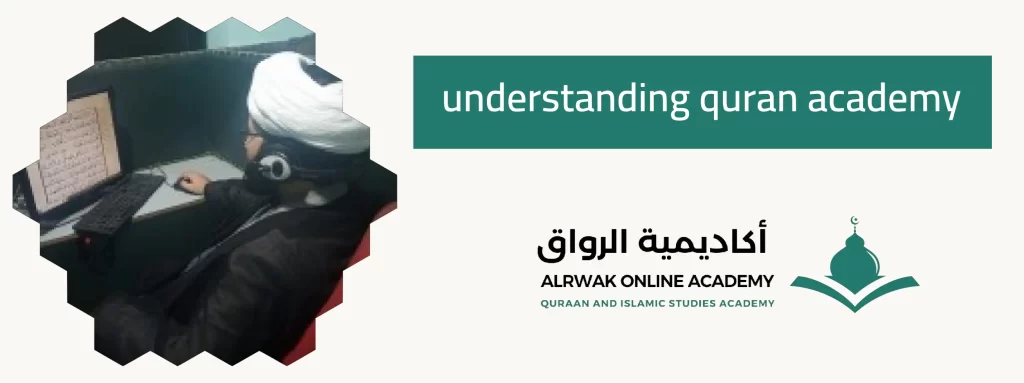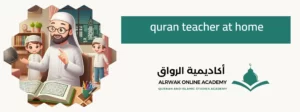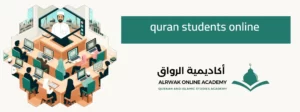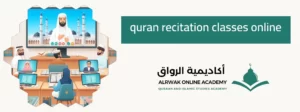In the pursuit of spiritual enlightenment and intellectual growth, individuals often turn to educational platforms that provide a deep understanding of their religious texts. One such platform that has gained prominence is understanding quran academy, an online resource dedicated to the study of the Quran. In this article, we delve into the intricate workings of Quran Academy, with a special focus on its innovative approach to education through Al-Rawaq Academy.
Quran Academy
Quran Academy stands as a virtual sanctuary for those seeking a profound connection with the Quran. Established with the vision of making Islamic knowledge accessible globally, the academy employs cutting-edge technology to break down barriers to learning. Offering a myriad of courses and resources, Quran Academy aims to cater to learners at various levels, from beginners to advanced scholars.
At the heart of Quran Academy’s success lies its diverse range of courses designed to accommodate learners with varying levels of expertise. Whether one is a novice seeking an introduction to the Quranic teachings or an advanced scholar aiming to delve into the depths of Islamic jurisprudence, the academy’s curriculum is meticulously curated to meet diverse educational needs.
1. Basic Quranic Studies: Quran Academy ensures that beginners receive a solid foundation in the essentials of Quranic studies. From learning to recite the Quran with proper Tajweed to understanding the basic principles of interpretation (Tafsir), these introductory courses pave the way for a deeper connection with the holy text.
2. Advanced Studies: For those seeking a more in-depth understanding, Quran Academy offers advanced courses in various disciplines such as Islamic jurisprudence (Fiqh), theology (Aqeedah), and prophetic traditions (Hadith). These courses, taught by renowned scholars, empower students to engage with the Quran on a profound intellectual level.
understanding quran academy
understanding quran academy goes beyond traditional teaching methods, incorporating innovative approaches to enhance the learning experience. Through interactive lessons, multimedia presentations, and engaging quizzes, the academy ensures that students actively participate in the learning process. This dynamic pedagogical approach not only makes the educational journey enjoyable but also facilitates a more profound understanding of the Quranic teachings.
1. Virtual Classroom Experience: Al-Rawaq Academy, an integral part of Quran Academy, takes the virtual classroom experience to new heights. The academy employs state-of-the-art technology to create an immersive learning environment, where students can interact with instructors and peers in real-time. This virtual setting transcends geographical boundaries, making quality Islamic education accessible to a global audience.
2. Gamified Learning Modules: Recognizing the importance of engagement in the learning process, Quran Academy incorporates gamified elements into its courses. By transforming lessons into interactive games and challenges, the academy not only captures the interest of students but also reinforces key concepts in a fun and memorable way.
Al-Rawaq Academy: Nurturing Minds, Enriching Souls
Al-Rawaq Academy, a flagship initiative of Quran Academy, serves as the embodiment of innovation and excellence in online Islamic education. Through its distinctive features and unwavering commitment to quality, Al-Rawaq Academy plays a pivotal role in shaping the educational landscape for those seeking a profound understanding of the Quran.
understanding quran academy, One of the cornerstones of Al-Rawaq Academy’s success is its team of qualified instructors and scholars. The academy ensures that its faculty members possess not only academic credentials but also a deep understanding of the Quran and its teachings. This commitment to excellence in education is reflected in the quality of instruction and mentorship provided by Al-Rawaq Academy.
1. Scholarly Guidance: Al-Rawaq Academy connects students with knowledgeable scholars who serve as mentors throughout their educational journey. This one-on-one interaction enables students to seek clarification, discuss complex topics, and receive personalized guidance, fostering a strong bond between the learner and the teacher.
2. Diverse Specializations: Recognizing the multifaceted nature of Islamic studies, Al-Rawaq Academy offers courses taught by specialists in various fields. Whether a student is interested in delving into the intricacies of Islamic jurisprudence, exploring the spiritual dimensions of the Quran, or unraveling the mysteries of prophetic traditions, Al-Rawaq Academy provides specialized courses to cater to diverse interests.
Technological Integration for Seamless Learning
Al-Rawaq Academy leverages technology as a tool to enhance the learning experience, making it seamless and accessible to students around the world. The integration of cutting-edge technology ensures that learners can engage with the material effectively, fostering a dynamic and interactive educational environment.
1. Virtual Tours and Simulations: To provide students with a more immersive experience, Al-Rawaq Academy utilizes virtual tours and simulations. Through these innovative tools, learners can virtually explore historical Islamic sites, witness key events, and gain a deeper understanding of the cultural and historical contexts surrounding the Quranic revelations.
2. Real-Time Collaboration: The academy promotes collaborative learning through real-time interaction and group activities. Students can participate in group discussions, collaborative projects, and joint assignments, fostering a sense of community and shared intellectual exploration.
more: best online quran academy
The Impact of Quran Academy and Al-Rawaq Academy on Global Learning
The advent of Quran Academy and its flagship initiative, Al-Rawaq Academy, has had a profound impact on global learning in the realm of Islamic studies. By embracing technology, employing qualified scholars, and offering a diverse range of courses, these platforms have revolutionized the way individuals access and engage with the teachings of the Quran.
A. Bridging Educational Gaps
Quran Academy, with the support of Al-Rawaq Academy, plays a crucial role in bridging educational gaps that have historically hindered the widespread dissemination of Islamic knowledge. Through online platforms, individuals from diverse backgrounds, regardless of geographical location or socioeconomic status, can access high-quality education and immerse themselves in the profound wisdom of the Quran.
B. Fostering Global Connectivity
The virtual nature of Quran Academy and Al-Rawaq Academy transcends physical boundaries, fostering a sense of global connectivity among students. Through online forums, discussion groups, and collaborative projects, learners from different parts of the world come together to exchange ideas, share experiences, and build a vibrant virtual community bound by a common quest for knowledge.
C. Empowering Self-Paced Learning
Quran Academy’s flexible learning modules and Al-Rawaq Academy’s technologically integrated approach empower individuals to pursue self-paced learning. Whether balancing professional commitments, academic pursuits, or familial responsibilities, students can tailor their learning experience to suit their unique schedules, ensuring that the pursuit of knowledge aligns seamlessly with the demands of modern life.
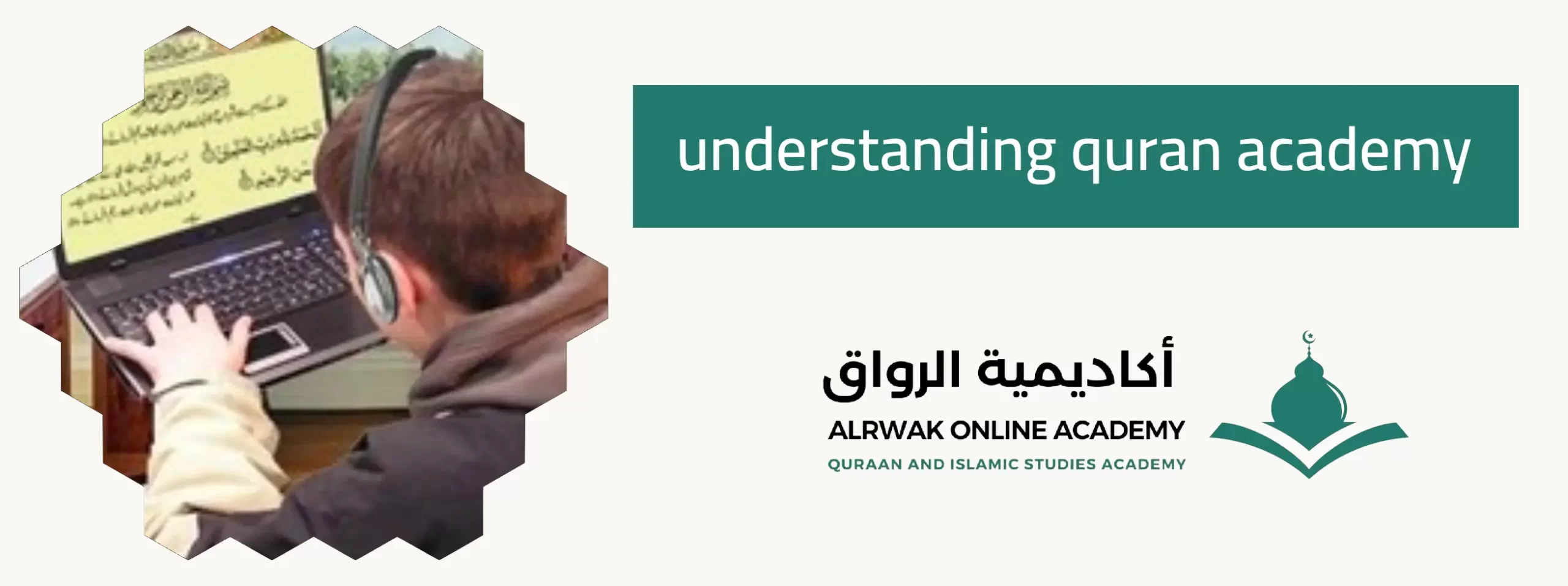
Challenges and Future Prospects
While Quran Academy and Al-Rawaq Academy have undoubtedly made significant strides in the realm of online Islamic education, they are not without challenges. Overcoming these hurdles and charting a path for future growth is essential for sustaining and expanding the impact of these platforms.
A. Technological Accessibility
One of the primary challenges faced by online educational platforms is ensuring technological accessibility for all. While Quran Academy aims to reach a global audience, disparities in internet access and technological infrastructure remain obstacles, particularly in underserved regions. Addressing these challenges requires innovative solutions, such as offline learning resources and partnerships with local communities to provide access to essential technologies.
B. Quality Assurance and Accreditation
Maintaining the highest standards of education is crucial for the credibility and impact of Quran Academy and Al-Rawaq Academy. Implementing quality assurance measures, seeking accreditation from relevant educational bodies,
and continuously updating curricula to reflect the latest scholarly advancements are essential steps to ensure that the education provided is both rigorous and relevant.
C. Cultural Sensitivity and Adaptability
To cater to a diverse global audience, Quran Academy and Al-Rawaq Academy must remain culturally sensitive and adaptable. Recognizing the nuances of different cultural contexts and incorporating diverse perspectives into the curriculum fosters a more inclusive and enriching educational experience for students from various backgrounds.
D. Future Prospects and Expansion
Looking ahead, the future prospects for Quran Academy and Al-Rawaq Academy appear promising. As technology continues to evolve, opportunities for innovation in online education will expand. Leveraging emerging technologies such as artificial intelligence, virtual reality, and augmented reality can further enhance the immersive learning experience, providing students with even more engaging and interactive ways to connect with the Quran.
understanding quran academy and Al-Rawaq Academy stand as beacons of knowledge, illuminating the path for individuals seeking a profound understanding of the Quran. Through innovative teaching methodologies, qualified scholars, and a commitment to global accessibility, these platforms have redefined the landscape of online Islamic education. As they continue to evolve and address challenges, Quran Academy and Al-Rawaq Academy hold the potential to empower countless individuals worldwide on their journey of spiritual growth and intellectual enlightenment. The union of tradition and technology in the pursuit of knowledge ensures that the wisdom of the Quran remains accessible to all, transcending the constraints of time and space.
Quran classes
Quran classes play a pivotal role in nurturing a deep and meaningful connection between individuals and the sacred text of Islam. These classes serve as educational sanctuaries where learners, ranging from children to adults, embark on a journey to explore the profound wisdom encapsulated in the verses of the Quran. Rooted in tradition and guided by the principles of Islamic pedagogy, Quran classes are spaces of spiritual growth, intellectual exploration, and communal bonding. The structure of these classes varies, encompassing both physical and virtual settings, catering to the diverse needs of students around the world.
In physical Quran classes, students often gather in local mosques, Islamic centers, or community spaces dedicated to religious education. These settings provide a communal atmosphere, fostering a sense of unity among learners as they engage in the shared pursuit of Quranic knowledge. Qualified instructors, well-versed in the nuances of Quranic studies, lead these classes, ensuring that learners receive accurate guidance in the recitation, memorization, and understanding of the Quran. The traditional method of oral transmission, where students recite verses and chapters under the supervision of their teachers, remains a cornerstone of these classes, preserving the age-old practice of passing down the Quran through generations.
In recent years, the advent of technology has significantly transformed the landscape of Quran classes, giving rise to virtual learning platforms that bring the teachings of the Quran to a global audience. Online Quran classes, facilitated by reputable educational platforms, leverage digital tools to overcome geographical constraints, allowing individuals from diverse backgrounds to access quality Quranic education. Virtual Quran classes often incorporate interactive features such as live streaming, virtual classrooms, and multimedia presentations, creating an immersive and engaging learning experience. This technological evolution not only caters to the needs of those unable to attend physical classes but also opens new avenues for interactive and dynamic pedagogy.
The curriculum of Quran classes typically covers a spectrum of subjects, ranging from basic Quranic recitation with proper Tajweed rules to in-depth studies of Quranic interpretation (Tafsir), Islamic jurisprudence (Fiqh), and the teachings of the Prophet Muhammad (Hadith). The structured progression of these courses ensures that learners build a solid foundation before delving into more complex aspects of Quranic knowledge. Furthermore, Quran classes often emphasize character development, moral values, and the application of Quranic principles in daily life, instilling a holistic understanding of Islam beyond mere academic knowledge.
The benefits of attending Quran classes extend beyond academic achievement, as these classes provide a supportive environment for spiritual growth and personal development. Students not only memorize verses of the Quran but also internalize the ethical and spiritual lessons embedded in the text. The sense of community cultivated within Quran classes fosters a collective commitment to the principles of compassion, humility, and empathy, reinforcing the communal bonds that lie at the heart of Islamic teachings.
Moreover, Quran classes contribute to the preservation of the Quranic tradition by nurturing a new generation of Hafiz (those who have memorized the entire Quran). The memorization of the Quran, known as Hifz, is a revered practice within the Islamic community, and Quran classes play a pivotal role in facilitating this process. Students, often starting at a young age, commit themselves to the rigorous discipline of memorizing the entire Quran, a feat that requires dedication, perseverance, and a profound connection with the divine text.
In conclusion, Quran classes serve as invaluable hubs of knowledge, spirituality, and community. Whether conducted in physical spaces or through virtual platforms, these classes play a crucial role in disseminating the teachings of the Quran, ensuring the preservation of Islamic traditions, and fostering a deep connection between individuals and the sacred text. As technology continues to shape the landscape of education, Quran classes, both traditional and virtual, stand as resilient pillars in the ongoing quest for spiritual enlightenment and a profound understanding of Islam.

